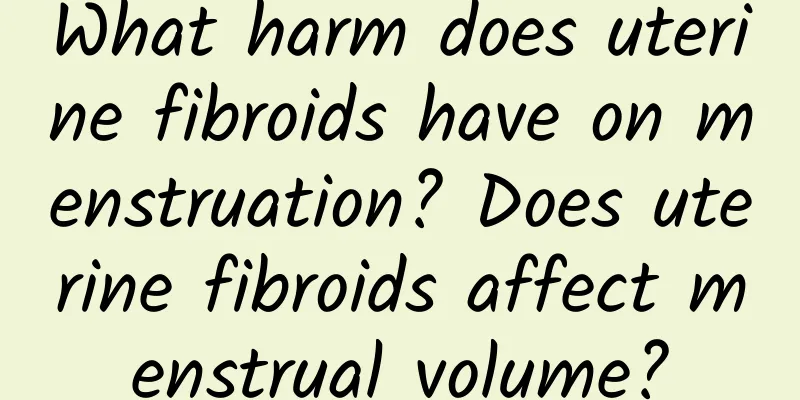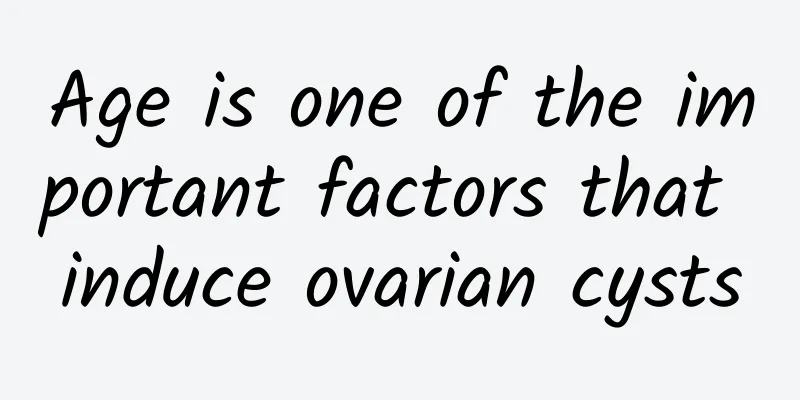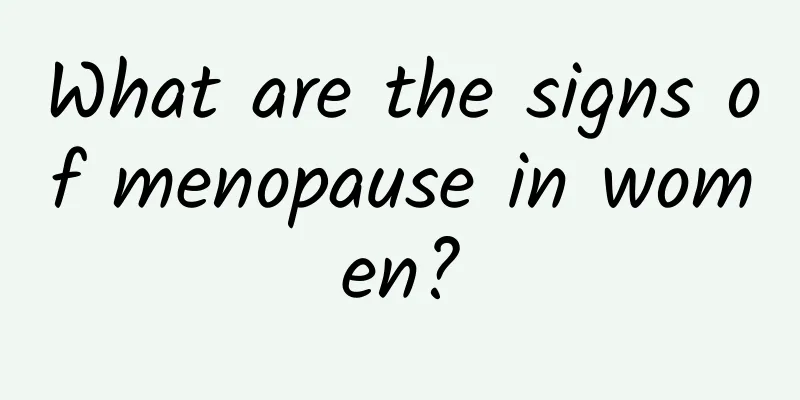What harm does uterine fibroids have on menstruation? Does uterine fibroids affect menstrual volume?

|
What harm does uterine fibroids have on menstruation? Does uterine fibroids affect menstrual volume? Uterine fibroids are common benign tumors in women, also known as uterine fibroids. Although most uterine fibroids do not cause serious health problems, they may have some harm to menstruation. This article will explore the impact of uterine fibroids on menstruation and the related harms. The first paragraph: The impact of uterine fibroids on menstrual volume Uterine fibroids may have some impact on menstrual flow. Some studies have shown that women with uterine fibroids may have heavier menstrual flow than women without uterine fibroids. This is because the presence of uterine fibroids may cause abnormal thickening of the uterine lining, which in turn increases the amount of blood discharged during menstruation. Therefore, women with uterine fibroids tend to experience heavier menstrual flow. The second paragraph: The impact of uterine fibroids on menstrual quality In addition to the increase in menstrual volume, uterine fibroids may also have a certain impact on the quality of menstruation. Many patients experience longer menstrual periods and more severe menstrual pain during menstruation. This is mainly because the presence of uterine fibroids may trigger the contraction of the uterine muscles, making it more difficult to discharge menstrual blood, resulting in continuous pain. Paragraph 3: The harm of uterine fibroids to quality of life The harm of uterine fibroids to menstruation is not limited to the impact on the amount and quality of menstruation, but may also cause certain troubles to the patient's quality of life. Due to the presence of uterine fibroids, many patients may experience pain and discomfort during menstruation, causing them to show greater anxiety and fatigue at work and in daily activities. In addition, irregular menstruation and excessive menstrual blood flow may also lead to anemia and affect physical health. Paragraph 4: Methods for treating uterine fibroids When uterine fibroids cause significant menstrual discomfort, it is very important to seek appropriate treatment. For most patients, doctors may recommend observation and monitoring of tumor growth without treatment. However, if uterine fibroids have a significant adverse effect on menstrual quality and quality of life, doctors may recommend surgery or other interventional therapies, such as uterine artery embolization. These treatments are designed to shrink or remove uterine fibroids, thereby improving menstrual symptoms and quality of life. Conclusion: Uterine fibroids have certain harm to menstruation, including increased menstrual volume, affected menstrual quality, and adversely affected quality of life. For patients with obvious symptoms, it is crucial to seek appropriate treatment in a timely manner to alleviate symptoms and improve quality of life. At the same time, regular inspection and monitoring of the growth of uterine fibroids is also key so that treatment plans can be adjusted early. |
Recommend
What are the symptoms of cervical erosion?
Cervical erosion refers to the ectopic movement o...
Call me the star of tomorrow successfully lost weight and showed off her slim figure
"We are all rising stars!" More than 20...
Eating green coffee and potatoes for breakfast can double your weight loss? Doctor: Overdosage may lead to three major risks of osteoporosis
Internet rumor: "Drinking green coffee for b...
Experts explain the two causes of pelvic inflammatory disease
Pelvic inflammatory disease is a manifestation of...
Do you know the complications of abortion?
Do you know about the complications of abortion? ...
How to take good care of yourself after suffering from adnexitis
After suffering from adnexitis, I believe everyon...
Why does ovulation bleeding occur?
Why does ovulation bleeding occur? Many couples w...
What causes Trichomonas vaginitis?
Trichomonas vaginitis is a common gynecological i...
What medicine can cure female cervical erosion? Guide to drug treatment of female cervical erosion
What Chinese medicine should be taken for moderat...
What are the causes of vaginitis?
Although vaginitis is not a serious disease, it c...
What is the cause of back pain in ectopic pregnancy?
Ectopic pregnancy refers to ectopic pregnancy. Ec...
What is the reason for amenorrhea for half a year? What should I do?
What is the reason for amenorrhea for half a year...
What diseases can pelvic inflammatory disease be easily confused with? How to distinguish them?
Pelvic inflammatory disease is also a very common...
Typical symptoms of adenomyosis
Typical symptoms of adenomyosis include progressi...
What are the physical characteristics of patients with acute ectopic pregnancy?
Acute ectopic pregnancy is a common clinical type...









